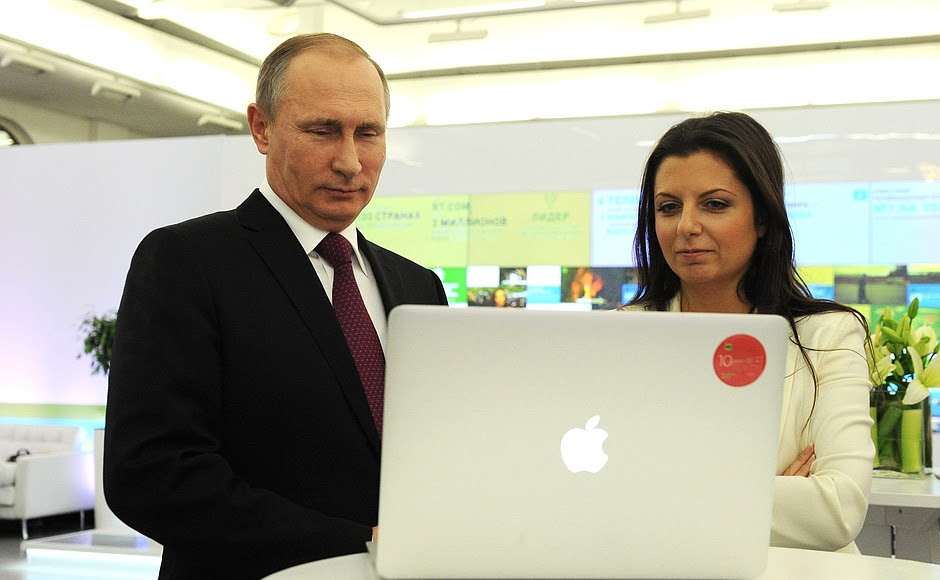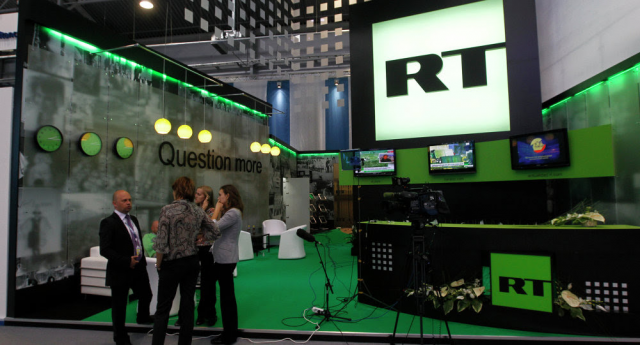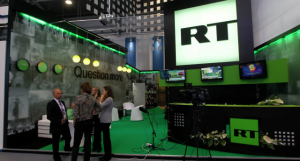UK Bank Closes Accounts of Russia’s Controversial News Network RT
LONDON – Russia’s controversial state-funded English news network RT (formerly Russia Today) announced earlier this week that its banking services in the UK had been abruptly frozen, claiming the British government was trying to muzzle the Kremlin-controlled channel.
“Long live freedom of speech!” Margarita Simonyan, the 36-year-old ethnic Armenian editor-in-chief of RT, wrote sarcastically on her Twitter account, adding that the bank refused to allow the network to appeal the decision the New York Times reported.
RT claimed that NatWest – the UK’s largest commercial bank – abruptly froze their existing bank accounts and refused to provide an explanation for the decision.
The Bank – which is a subsidiary of the Royal Bank of Scotland Group – released a statement saying that RT’s accounts were not being frozen, but would be closed, by December 12 following a decision by the group’s board of directors.
Immediate after the release of the bank’s statement, RT reversed its story and confirmed that the bank was simply closing the accounts and would allow the broadcaster to continue to deposit and withdraw funds until the December cut-off date.
The British government has denied any involvement in NatWest’s decision saying in an official statement, “the U.K. government hasn’t changed the sanctions and obligations related to Russia since February 2015. For that reason, this is a decision that only NatWest has made, possibly based on their own risk appetite.”
RT’s Simonyan blasted the bank’s decision, calling it “incomprehensible and without warning.” She added that the move was part of a concerted effort in Britain, “to ostracize, shout down or downright impede the work of a free and independent network like RT.”
NatWest’s decision comes after RT’s accounts with Barclay’s, the network’s principal bank in the UK, were closed in July 2015.
Several members of RT’s staff, including the president of its parent company – Kremlin ally Dmitry Kiselyov – have been included on the EU and US’ sanctions list for their support of the invasion of Ukraine and annexation of Crimea.
The network was launched in 2005 at the behest of Kremlin-insider and former Media Minister Mikhail Lesin.
RT evolved from a network of soft programming that highlighted Russia’s cultural and economic traits into a virulently anti-Western Kremlin mouthpiece that portrays the West as a grim, divided, brutal, decadent society, with absurd claims that it is overrun with violent immigrants, Fascists and predatory homosexuals.
Reports on RT often fawn over President Vladimir Putin and his handling of affairs at home and abroad. The network's journalists generally castigate former the Euro-Atlantic integration ambitions of Georgia and Ukraine, claiming the democratically elected governments in both countries are merely puppets of the US.
RT's reporters are also known to lionize the causes of pro-Russian separatists in Ukraine's Donbass, Georgia's occupied regions Abkhazia and South Ossetia and Moldova's breakaway Transnistria region.
The network - the shrill Simonyan, in particular - has gained a reputation for coming down hard on RT journalists who refuse to tow the Kremlin line.
It has openly backed the Republican nominee for the US Presidency, Donald Trump, and campaigned vigorously for a Brexit vote earlier this year.
RT regularly features conspiracy theorists and guests who are sympathetic to Putin's view of the West - including UK Labour Party leader Jeremy Corbyn and Wikileaks founder Julian Assange.
By Nicholas Waller
Photo: Kremlin.ru
Margarita Simonyan with Russian President Vladimir Putin in RT's Moscow bureau












